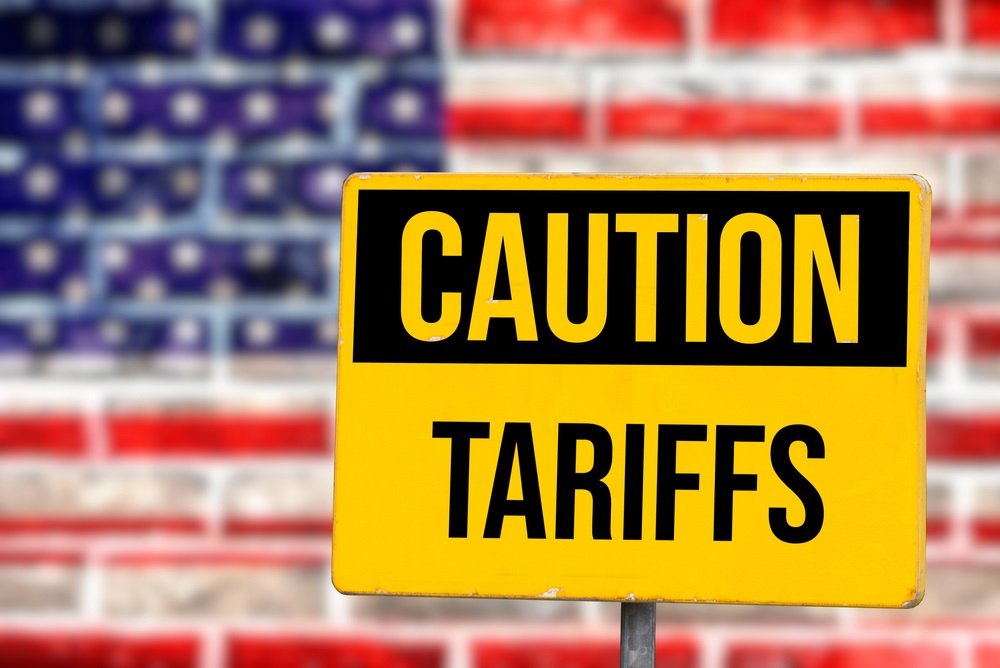Donald Trump’s trade policies are rightly being derided as economically damaging. According to the Tax Foundation, the average American may experience a $1300 reduction in after-tax income this year if proposed tariffs go into effect. GDP is expected to decline by between 0.8% and 1% this year, depending on how other nations respond. Federal Reserve Chairman Jerome Powell has warned that we may be facing the twin evils of creeping inflation and rising unemployment in the near future. Yet the narrative that Trump is imposing tariffs on a nation previously committed to free trade is false.
At my institute, the Bridwell Institute for Economic Freedom, we spend our days trying to understand how variations in economic freedom impact broader social and economic trends. The Economic Freedom of the World Annual Report (EFW), on which my colleagues Robert Lawson and Ryan Murphy are two of several co-authors, contains a variety of metrics that help capture what it means for a country to be economically free. Area four (out of five) tracks several indicators related to freedom to trade internationally. In 1970, the first year for which we have data, the US ranked 4th in the world for trade freedom. We currently rank 53rd. There are 165 countries included in the most recent version of the index, so we aren’t even in the top quartile of countries for freedom to trade.
It’s important to note that our data is released on a two-year lag, so our most recent economic freedom data is for the year 2022. If Trump’s trade agenda succeeds even a little bit, our relative ranking on world trade will deteriorate even further.
The Freedom to Trade Internationally component of the EFW is comprised of 10 variables spread across four subcomponents: (1) tariffs, (2) regulatory trade barriers, (3) black market exchange rates, and (4) controls of the movement of capital and people. Both tariffs and non-tariff barriers are higher than they were in the early 2000s, though they have remained relatively stable since the early 20-teens. Still, we rank 62nd in the tariff subcomponent of the index, and 31st in the regulatory trade barrier component. We have no notable black market exchange rates that would impact the index. Where we have seen substantial deterioration since 2000 is in the fourth subcomponent reflecting controls on the movement of capital and people.
It’s important to note that the “movement of people” here does not refer to immigration, though that is another area on which Trump’s current policies are proving problematic. This instead refers to the freedom of foreigners to visit our country for purposes of either business or pleasure. We make this process unnecessarily difficult, ranking 44th in this category.
We also substantially regulate the flow of capital both into and out of our country. We rank 66th in the capital controls category. There are a number of controls, for instance, on the ability of non-residents to invest in the United States. These sorts of capital controls have a number of negative consequences, including distorting resource allocation, limiting access to foreign capital, discouraging foreign investment, and increasing costs due to the administrative burden of enforcing these restrictions.
The EFW rankings are relative rankings, so we can fall either because our terms of trade have deteriorated or because other countries have improved. As Douglas Irwin said in a recent WSJ article, “The U.S. shouldn’t have stupid tariff policies just because other countries have stupid tariff policies.” We’re now in a world in which other countries are enacting stupid policies in response to Trump’s misguided trade agenda. Even if our relative rankings improve, raw scores will undoubtedly decline here and abroad.
On a fundamental level, President Trump doesn’t believe that positive sum games are possible. The world, in his view, is a zero-sum game. Yet worldwide the average person is 4.4 times richer than they were in 1950, even with a concurrent explosion in population of 5.5 billion people. This explosion in prosperity was facilitated by the international alliances that were forged over this period. Indeed, countries like South Korea, Taiwan, and Singapore who opened themselves up to comprehensive international trade are now more than 30 times richer than they were in 1950. Trade is the ultimate positive sum game.
Two and a half centuries ago, Adam Smith explained that the way to prosperity was not mercantilism, but instead through creating opportunities to truck, barter, and exchange. President Trump’s policies are currently cutting off those engines of prosperity. In doing so, he is creating the conditions for a precipitous fall in economic freedom, which will likewise destroy many of the benefits that freedom brings.
Meg Tuszynski is the Managing Director of the Bridwell Institute for Economic Freedom in the Cox School of Business at Southern Methodist University. She is also a Research Assistant Professor in the Cox School.
